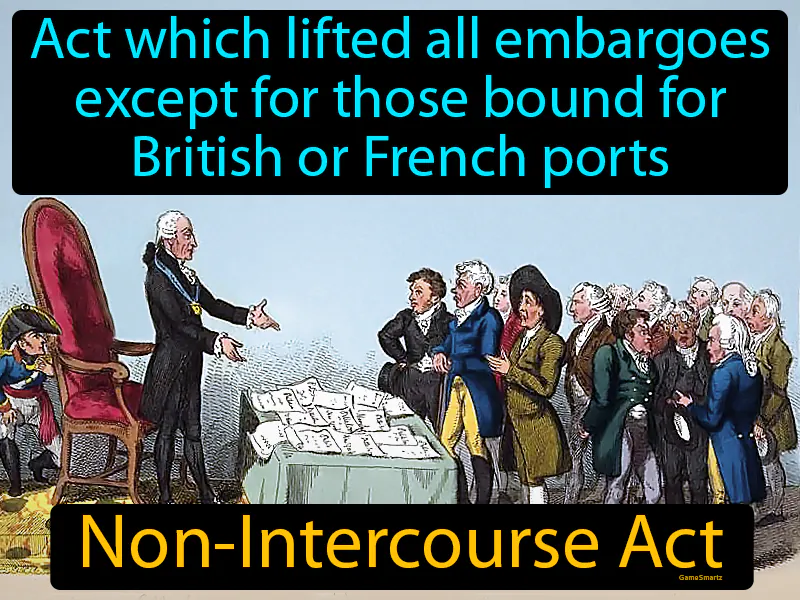Non-Intercourse Act
Non-Intercourse Act: Easy to understand
The Non-Intercourse Act of 1809 was important because it aimed to ease economic tensions by allowing trade with countries other than Britain and France during the Jefferson Era. This act highlighted ongoing struggles between the U.S. and European powers, emphasizing the importance of economic independence and diplomacy. Today, these ideas still matter as countries navigate trade agreements and sanctions, balancing national interests with global relationships. For an average person, these historical tensions remind us of the importance of global cooperation and how trade policies can affect things like job availability and prices on imported goods. By understanding these connections, individuals can better appreciate how international relations impact their daily lives, from the cost of goods to the stability of employment opportunities.

Practice Version

Non-Intercourse Act: Act which lifted all embargoes except for those bound for British or French ports. Non-Intercourse Act. The Non-Intercourse Act was a U.S. law from 1809 that banned trade specifically with Britain and France to pressure them to respect American neutrality during the Napoleonic Wars.